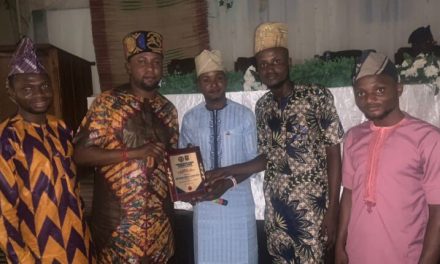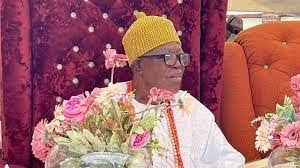By
Idris Olabiyi
In an age where information is sufficiently accessible, ignorance is no longer just a lack of knowledge; it is a costly burden that far exceeds financial implications. Ralph Waldo Emerson once said, “if you think education is expensive, try ignorance.” This quote holds true in our century, where individuals have been paying a heavily, not just with their wallets or money in the banks but also in missed opportunities, diminished potential, and a compromised quality of life. The pursuit of knowledge and education has never been more crucial, regardless of the financial investment required.
When we consider the consequences of ignorance, it becomes evident that the price paid extends far beyond monetary terms. Ignorance perpetuates stereotypes, fuels division, and also a clog in the wheel of societal progress. Society at large suffers when individuals are uninformed, as it breeds intolerance, misconceptions, and unjustified judgment. Ignorance obstructs personal growth, hinders societal advancement, and ultimately cripples humanity’s potential for a better future.
Ignorance limits opportunities for personal and professional growth. Through education, one gains the tools necessary to succeed in modern society. The lack of knowledge not only restricts individual progress but also hampers collective development. Consider the opportunities missed in the job market due to an inadequate skill set or the inability to adapt to rapidly evolving technologies. Ignorance effectively puts people on the sideline while others sprint ahead, leaving them trapped in a cycle of frustration and underachievement.
Ignorance can have dire consequences when it comes to health and well-being. Many health ailments are preventable or can be managed effectively with the right knowledge and information. Ignorance about basic health practices, disease prevention, or neglecting facts can lead to avoidable suffering and even loss of life. Without education, individuals are more susceptible to misinformation, pseudoscience, dubious medical practices, and unhealthy habits that can detrimentally impact their well-being.
Education plays a key role in fostering inclusivity, empathy, and social harmony. Ignorance fuels prejudice, discrimination, and intolerance. It breeds narrow-mindedness and bias that hinder the creation of a cohesive and progressive society. Education provides a broader understanding of different cultures, perspectives, and values, fostering empathy among individuals. Without education, the vicious cycle of ignorance threatens to perpetuate prejudices and inhibits the growth of a compassionate and inclusive global community.
Embracing the Arab saying, “seek knowledge, even as far as The Far East,” we must understand that education is an investment with immeasurable returns. It empowers individuals to become critical thinkers, enables them to make informed decisions, and equips them with the ability to adapt to a rapidly changing world. Education instills confidence, broadens horizons, and inspires innovation. It cultivates a hunger for knowledge, encouraging a lifelong pursuit of understanding, growth, and personal development.
In conclusion, a world where ignorance carries an unfathomable cost, education becomes the antidote. The price we pay for ignorance extends beyond financial constraints, infiltrating various facet of our lives and society. Investing in education is an investment in ourselves, our collective well-being, and the advancement of humanity as a whole. Let us challenge the notion that education is expensive and prioritize the pursuit of knowledge, irrespective of the cost, to ensure a brighter and more enlightened future for all.






